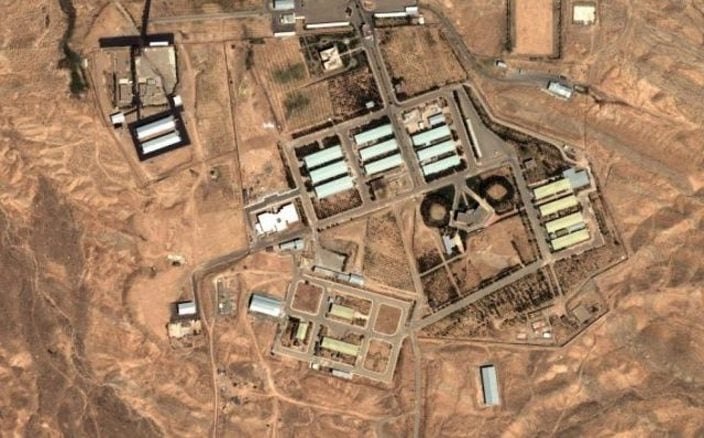Iran’s nuclear program was further along than previously thought, a new report shows.
By Jack Gold, World Israel News
New images and data published by the Institute for Science and International Security (ISIS) in Washington indicate that Iran’s military nuclear program was in far more advanced stages than previously thought, Israel’s Maariv daily reported Tuesday.
According to the newly published information, Iran had set up labs and pressure rooms in a military base in Parchin near Tehran and had conducted experiments there on the explosion chain, a necessary stage in the process of assembling nuclear weapons.
The report said that the Parchin site was a crucial component of Iran’s nuclear program. The images reveal that the site had a laboratory, where Iranian scientists developed and tested a neutron accelerator.
The Institute’s report emphasizes that the building of such an accelerator is particularly difficult and requires great skill and knowledge, testifying to the ability and progress that the Iranians had made.
In addition, the new information reveals that the Parchin site had an underground bunker designed to store a nuclear bomb and outlines how Iran intended to assemble five nuclear bombs and set up a site for underground nuclear testing.
The report underscores that these new findings clearly contradict Tehran’s denials about the existence of such a program and show that Iran violated the Treaty on the Non-Proliferation of Nuclear Weapons (NPT) and the Comprehensive Nuclear-Test-Ban Treaty (CTBT), of which it is a signatory.
Iran Provides the Proof
The report’s findings originated in Iran’s own nuclear weapons files. Iran’s covert nuclear program, known as Project Amad, ran from 1999 to 2003. The Mossad obtained the files earlier this year.
Details held in the archive were presented by Prime Minister Benjamin Netanyahu in April, and further information was released during briefings by Israeli officials in the Prime Minister’s Office.
In the past months, the Mossad and Israel’s Atomic Energy Commission have been active in sharing the documents with intelligence organizations from the six countries that signed the nuclear agreement with Iran. Similarly, experts have arrived in Israel to view the documents, diagrams, and computer simulations produced by the Iranians.
The latest photos and documents, along with an analysis of Israel’s findings, were published by by Dr. David Albright, who has been working on the subject for many years, and Dr. Olli Heinonen, who until a few years ago was Deputy Director-General of the International Atomic Energy Agency (IAEA), which is responsible for overseeing Iran’s nuclear program.
The authors of the paper called on the IAEA to take action and demand that Iran provide explanations for the findings from the archive and that the IAEA inspect all the sites related to its nuclear program.
Addressing the U.N. General Assembly in September, Netanyahu called on IAEA head Yukiya Amano to take action, since it has failed to do so comprehensively.
Amano replied that that his organization was doing everything that was needed, but did not elaborate.


